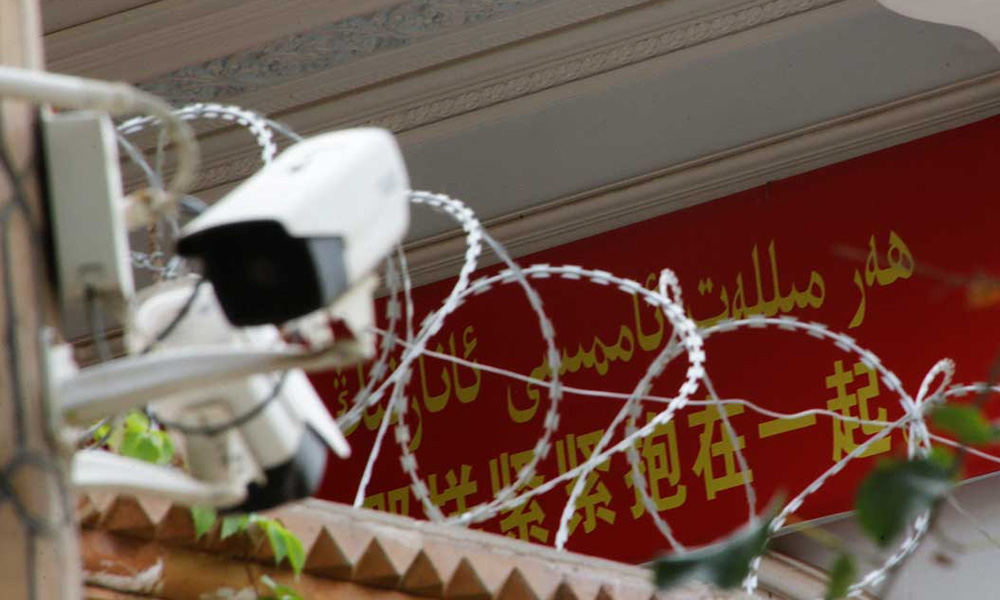COMMENT | On May 14, the US Senate passed the Uyghur Human Rights Policy Act. The bill now goes to the US House of Representatives and then to the desk of the president to be signed into law.
This is a milestone for us as Uyghurs. We have spent years struggling to have our voices heard. Since 2017, the Chinese government's brutal campaign of mass internment, imprisonment, and coerced labour has brought the continued existence of the Uyghurs into question.
The legislation endorses targeted sanctions on culpable Chinese government officials and creates a mandate for reports on human rights abuses in the Uyghur region and on Chinese government harassment of Uyghurs living inside the US. Uyghurs have a pathway to bring to account our persecutors.
It is now time for other countries to embark on similar actions and Muslim-majority countries must break their silence on Chinese state repression of Uyghurs. Malaysia can take the lead.
Malaysia has witnessed a growing outspokenness on the Uyghur crisis. Late last year, the Muslim Youth Movement Malaysia (Abim) urged the Chinese government to stop “playing with political propaganda” inside Malaysia about conditions for Uyghurs, adding the abuses are well documented.
Furthermore, the Malaysian government appointed the International Institute of Islamic Thought and Civilisation to investigate reports of Chinese government repression in the Uyghur region.
As the executive director of the Uyghur Human Rights Project, an organisation dedicated to documenting rights abuses targeting Uyghurs and advocating for change, I welcome these developments in Malaysia.
Uyghurs understand that states like Malaysia must deal with China. We also believe that states like Malaysia can take a lead in advocating for justice and freedom from persecution.
Often when discussing China, observers claim some governments bury their values for the sake of economic promises. Malaysia can demonstrate that values can be at the forefront of relations with China and maintain national interest.
The Uyghur people are in an existential fight for their ethno-religious identity. An academic has estimated that up to 1.8 million Uyghurs may have been interned in camps since 2017.
The reports of a system that is diversifying its repression are shocking. One notes how in 2017 alone prison sentences increased 10 times than in the previous year.
Another describes how: “Nearly a half million children have been separated from their families and placed in boarding schools.” Camp survivors give accounts of indoctrination designed to curb Uyghurs’ religious beliefs and language, cornerstones of their distinctiveness.

Malaysian civil society has made its feelings known about the Uyghur crisis. In addition to Abim, others have spoken out. The Malaysian Bar Council has pointed out the repression facing Uyghurs in China. Tenaganita called for “protection and compassion” for Uyghurs, saying that they “are now one of the most persecuted groups in the world.”
There have been calls from the top Islamic jurist in Perlis and Malaysian intellectuals for more pressure to be exerted on China and to resist Beijing’s disinformation in Malaysia about the Uyghur crisis.
There are small signs the Malaysian government is losing patience. Former prime minister Dr Mahathir Mohamed said his former administration would not extradite Uyghurs seeking asylum in Malaysia on the grounds that they are not “fairly protected” in China.
Malaysia has a record of guaranteeing Uyghurs’ safety. In October 2018, Malaysia released 11 Uyghur refugees to Turkey, after dropping immigration-related charges. Mahathir commented: “They have done nothing wrong in this country, so they are released.”
All these actions have been undertaken because Malaysians believe in freedom and justice. These are values Malaysians are willing to defend. The people of Malaysia know what is at stake.
To speak out on the Uyghur crisis is to push back against the imposition of Chinese Communist Party values that Chinese diplomats, media, and political leaders are aggressively promoting across the globe.
What the Chinese party-state is proposing is authoritarianism that offers a narrow definition on freedom of religion, speech and privacy. Any real or perceived opponent is suppressed extrajudicially or in the biased criminal system.
Malaysia can make a difference and not just in its bilateral relations with China. It is an influential player among Muslim-majority states and in Southeast Asia. Its voice carries weight in multilateral organisations.
Already there are signs of concern about the intense repressive turn in the Uyghur region among Muslim-majority states. Whether it is protestors in Indonesia and Turkey, members of Parliament in Kuwait, or Bahrain’s Council of Representatives, leadership on the Uyghur crisis from Muslim states will make an impact on how China treats Uyghurs.
Image is everything in Beijing as it embarks on policies of global influence. Malaysia’s direction and reminders to China that the values of justice and freedom cannot be conveniently put aside in this pursuit is part of the solution to ending the Uyghur nightmare.
It is time for Malaysia, Muslim-majority states, and free nations across the globe to put in place legislative protections for the Uyghur people.
OMER KANAT is executive director of Uyghur Human Rights Project.
The views expressed here are those of the author/contributor and do not necessarily represent the views of Malaysiakini.

